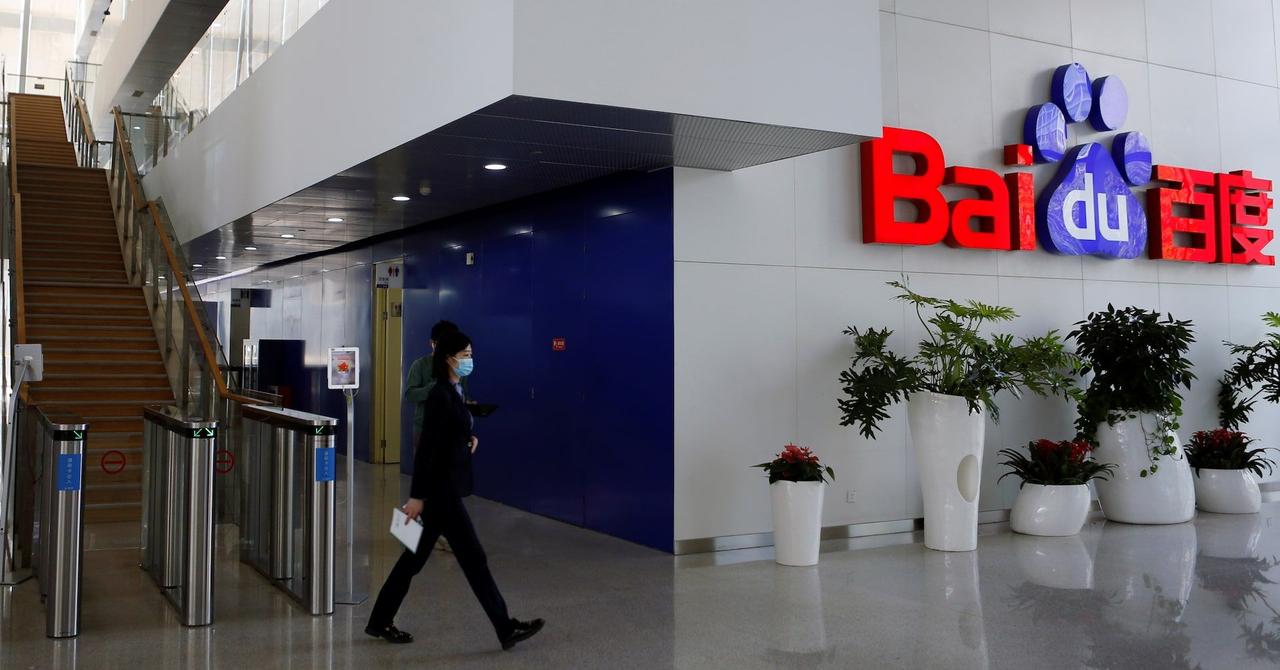Baidu Unveils Next-Generation AI Chips to Challenge Western Dominance in Chinese Market
2 Sources
2 Sources
[1]
Baidu teases next-gen AI training, inference accelerators
Chinese search giant plans to bring custom silicon to the rack scale in 2026 with 256- and 512-chip systems Chinese search giant Baidu unveiled two new AI accelerators this week amid a national push to end reliance on Western chips. Baidu was an early adopter of generative AI technologies, developing models like its ERNIE family. Like many Western cloud providers, including Amazon and Google, Baidu has been designing custom accelerators for years. According to the South China Morning Post, the search provider's latest generation of chips aims to drive down inference costs and support larger, more complex architectures. The company plans to release a new inference-optimized chip, the M100, next year. It was developed by its Kunlunxin chip unit to better serve the next generation of mixture-of-experts (MoE) models. As we've recently explored, MoE architectures present specific challenges for inference at scale, particularly as models grow beyond a single accelerator or server. In many cases, interconnect bandwidth and latency become a bottleneck, inhibiting performance. It appears Baidu aims to sidestep this particular issue by building larger compute domains, similar to what AMD and Nvidia are doing with their own rack-scale architectures. Baidu plans to offer the chips in a clustered configuration called the Tianchi256 beginning in early 2026. As the name suggests, the configuration will feature 256 M100 accelerators. Baidu will reportedly expand the system to an even larger compute domain with the launch of the Tianchi512 in late 2026, which will double the system's inference capacity. Alongside inference serving, Baidu is also working on a more powerful training-optimized chip called the M300, which will make its debut in 2027. The chip aims to support the training of multi-trillion-parameter models, which have become increasingly common over the past year, with Moonshot AI's Kimi K2 being just one example. Alongside the new silicon, Baidu announced ERNIE 5.0, its latest foundation model, capable of working with text, images, audio, and videos. Baidu's latest hardware underscores a strategic shift by the Chinese away from Nvidia accelerators. Officials in Beijing have reportedly pressured tech titans to ditch Western suppliers in favor of domestic alternatives. Last week, Nvidia CEO Jensen Huang admitted that efforts to sell its Blackwell accelerators in China had stalled and that there were currently no "active discussions." The sea change has bolstered efforts by Huawei and other Chinese chipmakers, including Biren, Cambricon Technologies, and MetaX, to bring home-grown GPUs to market. Earlier this year, we looked at Huawei's new CloudMatrix 384 rack machines. While nowhere near as efficient as Nvidia's Blackwell family, they make up for it with sheer scale. ®
[2]
China's Baidu unveils new AI processors, supercomputing products
BEIJING (Reuters) -Baidu unveiled two new semiconductors for artificial intelligence on Thursday, saying the products can provide Chinese companies with powerful, low-cost and domestically controlled computing power. Escalating tensions between the United States and China have led to restrictions on exports of advanced U.S. AI chips to Chinese firms, prompting many to develop their own processors or seek domestic alternatives. The company said at its annual Baidu World technology conference that the M100, an inference-focused chip, is set to be launched in early 2026. The M300, capable of both training and inference, is slated for early 2027. Training builds AI models by learning patterns from large datasets, while inference uses those models to make predictions and process user requests. Baidu, which has been developing proprietary chips since 2011, also announced two so-called supernode products. Such products leverage advanced networking capabilities, linking multiple chips and seeking to compensate for limitations in individual chip performance. Huawei has deployed a similar product called CloudMatrix 384, comprising 384 of its Ascend 910C chips, which industry observers consider more powerful than Nvidia's GB200 NVL72, one of the U.S. chipmaker's most advanced system-level products. Huawei also announced in September it would launch more powerful supernode products in coming years. Baidu's Tianchi 256, which will be comprised of 256 of its P800 chips, will be available in the first half of next year. Another more souped-up version using 512 of those chips will be launched in the second half. The company also unveiled a new version of its Ernie large language model, which it said excels not only at text processing, but also image and video analysis. (Reporting by Liam Mo and Brenda Goh; Editing by Edwina Gibbs) By Liam Mo and Brenda Goh
Share
Share
Copy Link
Chinese search giant Baidu announces new AI training and inference accelerators, including the M100 and M300 chips, alongside rack-scale systems designed to reduce reliance on Western semiconductors amid escalating US-China tech tensions.
Baidu's Strategic Chip Initiative
Chinese search giant Baidu unveiled two new AI accelerators this week as part of a broader national strategy to reduce dependence on Western semiconductor technology. The announcement, made at Baidu's annual World technology conference, represents a significant step in China's efforts to develop domestic alternatives to restricted US chips
1
2
.Source: The Register
Baidu, an early adopter of generative AI technologies with its ERNIE model family, has been developing custom accelerators for years, following a similar path to Western cloud providers like Amazon and Google. The company's latest generation of chips aims to drive down inference costs while supporting larger, more complex AI architectures
1
.
Source: Market Screener
New Chip Specifications and Timeline
The company plans to release the M100, an inference-optimized chip developed by its Kunlunxin chip unit, in early 2026. This processor was specifically designed to better serve the next generation of mixture-of-experts (MoE) models, which present unique challenges for inference at scale due to interconnect bandwidth and latency bottlenecks
1
2
.Alongside the M100, Baidu announced the M300, a more powerful training-optimized chip capable of both training and inference operations. Set to debut in early 2027, the M300 aims to support the training of multi-trillion-parameter models, which have become increasingly common in the AI landscape
1
2
.Rack-Scale Computing Solutions
To address the interconnect challenges inherent in large-scale AI inference, Baidu plans to build larger compute domains through clustered configurations. The Tianchi256 system, featuring 256 M100 accelerators, will become available in early 2026, with an expanded Tianchi512 configuration launching in late 2026 to double the system's inference capacity
1
.These supernode products leverage advanced networking capabilities to link multiple chips, compensating for limitations in individual chip performance. The approach mirrors strategies employed by AMD and Nvidia with their own rack-scale architectures, as well as Huawei's CloudMatrix 384 system
1
2
.Related Stories
Geopolitical Context and Market Impact
Baidu's hardware announcement occurs against the backdrop of escalating US-China tensions that have resulted in restrictions on exports of advanced American AI chips to Chinese firms. These trade limitations have prompted many Chinese companies to develop proprietary processors or seek domestic alternatives
2
.The strategic shift has been reinforced by Beijing officials reportedly pressuring Chinese tech companies to abandon Western suppliers in favor of domestic alternatives. This pressure has intensified following Nvidia CEO Jensen Huang's recent admission that efforts to sell Blackwell accelerators in China have stalled, with no active discussions currently underway
1
.The geopolitical tensions have bolstered efforts by Chinese chipmakers including Huawei, Biren, Cambricon Technologies, and MetaX to bring domestically produced GPUs to market, creating a more competitive landscape for AI hardware in China
1
.References
Summarized by
Navi
[1]
[2]
Related Stories
Baidu Unveils Advanced AI Chip Cluster and New Models, Challenges DeepSeek's Dominance
25 Apr 2025•Technology

Baidu Emerges as China's Leading AI Chip Player with $28 Billion Kunlunxin Unit
28 Nov 2025•Business and Economy

Alibaba Develops AI Inference Chip Amid China's Push for Semiconductor Independence
28 Aug 2025•Technology

Recent Highlights
1
ByteDance Faces Hollywood Backlash After Seedance 2.0 Creates Unauthorized Celebrity Deepfakes
Technology

2
Microsoft AI chief predicts artificial intelligence will automate most white-collar jobs in 18 months
Business and Economy

3
Google reports state-sponsored hackers exploit Gemini AI across all stages of cyberattacks
Technology





